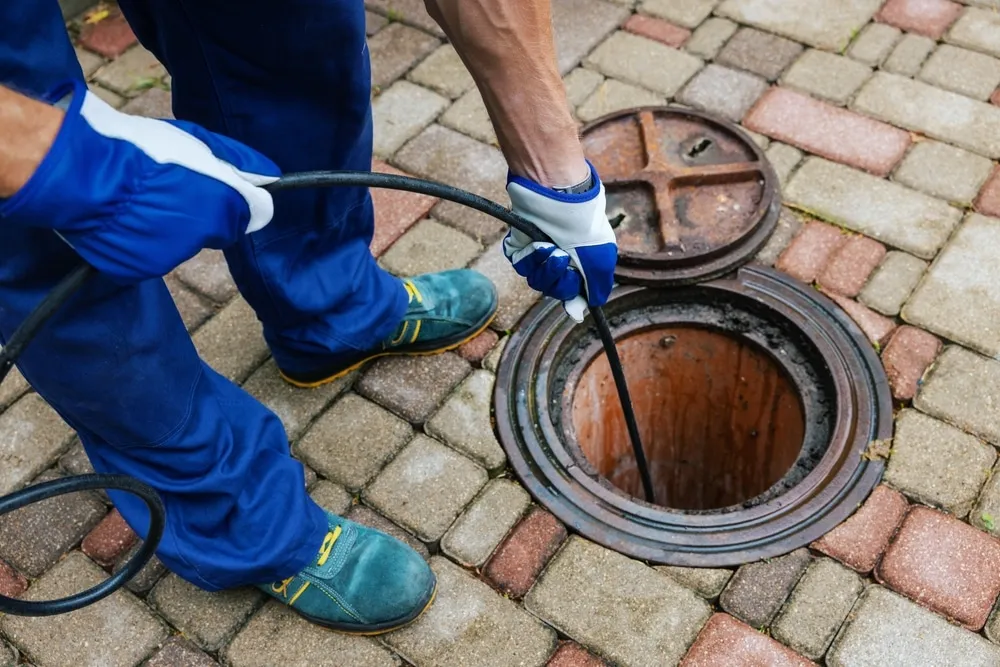When it comes to managing wastewater in our homes, effective sewage pumps play a crucial role. Understanding the various types of sewage pumps available and how to choose the right one for your house is essential for maintaining a healthy and safe living environment. Your choice of pump depends on several factors, including the specific requirements of your home’s wastewater system and your individual needs.
In this guide, we delve into the critical aspects of selecting the perfect sewage pump, which not only meets the operational demands of your household but also ensures longevity and reliability. We will walk you through the specific features to consider and the benefits each type of pump offers. Additionally, we understand that keeping your pump running smoothly is just as important as choosing the right one. Hence, we will also cover essential maintenance tips that can help you maximize the performance and lifespan of your sewage pump. By equipping yourself with this knowledge, you’ll be better prepared to make an informed choice that ensures seamless waste management within your home.
Understanding Different Types of Sewage Pumps
When tackling the subject of sewage pumps, it’s critical to grasp the various types available, as selecting the right pump is crucial for efficient waste management in your home. Generally, sewage pumps are classified into three main types: submersible, pedestal, and grinder pumps. Submersible sewage pumps are designed to be placed underwater at the lowest point of your sewage basin. Their major advantage is that they can handle large volumes of wastewater without much noise, as they are submerged. Pedestal sewage pumps, on the other hand, have their motors positioned above the pit, which makes them easier to service, although they are noisier. Grinder pumps are equipped with cutting blades that grind solid waste before pumping it out, suitable for locations where the sewer line is at a higher elevation than the home.
Each type of pump serves a specific purpose, tailored to different residential or commercial needs. Understanding these options helps ensure that you choose a pump that can handle the amount of waste and the type of solids that typically go through your system, thereby reducing the risk of malfunctions and maintenance issues.
Key Factors to Consider When Choosing a Sewage Pump
Selecting the right sewage pump for your home involves more than just picking any pump off the shelf. Several key factors should be considered to ensure optimal performance and longevity of the pump. Here are some of the most crucial aspects:
- Motor Power: The power of the motor determines how effectively the pump can move sewage. You need a pump that is powerful enough for the volume and type of waste your home produces.
- Pump Capacity: This refers to the quantity of sewage a pump can handle, measured in gallons per minute (GPM). It’s important to choose a pump that meets the demands of your household’s water usage.
- Durability: The construction of the pump, particularly the materials used for the impeller and housing, impacts its durability. Materials such as cast iron and stainless steel are preferred for their resilience and long-term performance.
- Automatic vs. Manual Operation: Automatic pumps are equipped with a switch that activates the pump when the sewage level rises to a predetermined level, whereas manual pumps require you to switch them on and off as needed. For ease of use and to prevent overflow, automatic pumps are generally recommended.
- Warranty and Support: Always look into the warranty and customer support offered for the sewage pump. Pumps with longer warranty periods and accessible customer support provide greater peace of mind and help ensure that any issues will be promptly addressed.
By carefully considering these factors, you can select a sewage pump that effectively meets your household needs while ensuring reliability and efficient waste management.
Step-by-Step Guide to Selecting Your Sewage Pump
Choosing the right sewage pump for your home is not just about picking any pump from the shelf; it involves understanding what specifically meets the needs of your household’s wastewater management. Let’s walk through a step-by-step guide to ensure you select a sewage pump that provides reliability and efficiency.
First, consider the types of waste the pump needs to handle. Will it need to process just liquid waste, or will it need to handle solids and semi-solids as well? This determines whether a grinder pump or a sewage ejector pump is suitable for your home. Next, calculate the lift, which is the height the pump needs to move the wastewater from the basement or below the ground level to the septic tank or sewer line. This measurement is crucial in choosing a pump that has the right power to ensure effective wastewater movement without overstraining the motor.
Maintaining Your Sewage Pump for Optimal Performance
Maintaining your sewage pump is key to ensuring it runs efficiently and lasts as long as possible. Regular maintenance can prevent massive inconvenience and costly repairs down the line. Always start with the basics: check for clogs and blockages regularly, especially if your pump handles solid waste. Clear any debris in the pit where the pump is housed, as accumulation can hinder the pump’s operation.
It’s also essential to check the pump’s operation periodically by pouring water into the pit and seeing if the pump activates and deactivates correctly at its float levels. If not, it may be time to adjust the float switch or replace it. For an annual checkup, we recommend a professional look into the mechanical seals and bearings if you hear unusual noises or the pump operates louder than usual, indicating potential mechanical wear.
Conclusion
Investing in a proper sewage pump and maintaining it adequately shields your home from potential disasters and ensures the smooth operation of your wastewater system. Being proactive about the selection, installation, and maintenance of your sewage pump not only enhances its efficiency but also extends its lifespan, ultimately saving you time and money.
At Pipes Plumbing, we recognize the importance of a reliable sewage system and are here to assist you with selecting the right pump, installing it precisely, and maintaining it year-round. If you ever need professional help or advice about your sewage pump, don’t hesitate to contact the best plumbers in Ottawa. Remember, a well-maintained sewage system is a key component of a happy and healthy home.

